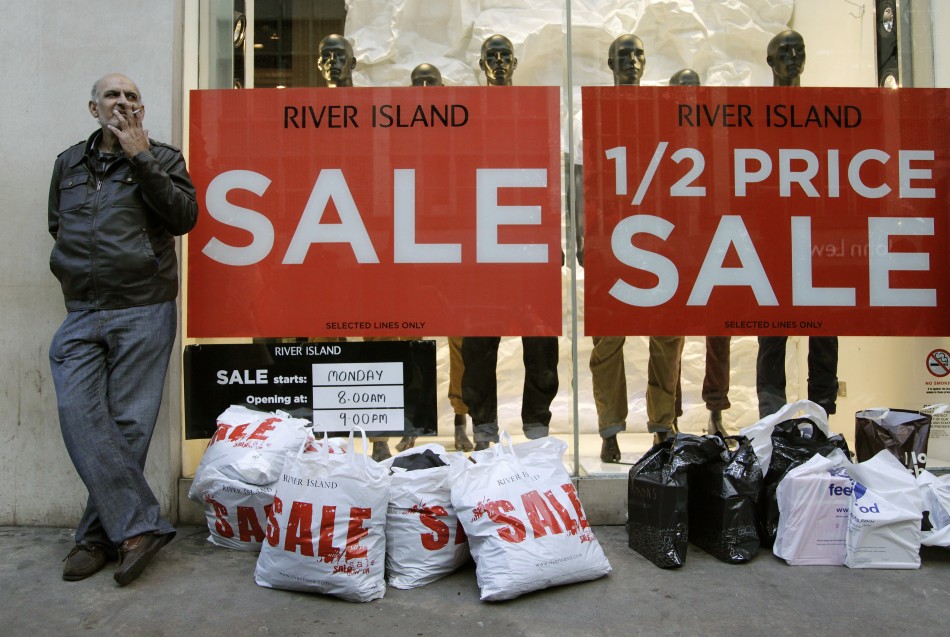- Retail Sales in U.S. Jump More Than Forecast in Broad Advance
Sales at U.S. retailers rose more than forecast last month in a broad advance after an even stronger September than initially estimated, showing consumers continue to pump up the economy.
A 0.8 percent rise in October followed an upwardly revised 1 percent jump in the prior month, marking the biggest back-to-back increase since March-April 2014, the Commerce Department reported Tuesday. The median forecast called for a 0.6 percent gain. Over the last 12 months, retail sales were up the most in almost two years.
Healthy hiring, wage growth and limited inflation are giving Americans the wherewithal to spend at stores, malls and online merchants. Momentum at the start of the quarter bodes well for household purchases, which account for about 70 percent of the economy, during the approaching holiday-shopping season.
“The consumer is in good shape,” said Michael Gapen, chief U.S. economist at Barclays Plc in New York. “The pace of household spending is fairly solid. We expect a slight acceleration this quarter from the third-quarter rate.”
Estimates in the Bloomberg survey for total retail sales ranged from gains of 0.3 percent to 1.2 percent after a previously reported 0.6 percent rise a month earlier. Retail receipts increased 4.3 percent from October 2015, the biggest advance since November 2014.
“A strong October following a strong September is encouraging,” Tom Simons, a senior economist at Jefferies LLC, said before the report. “The labor market continues to be strong, and wage growth appears to be accelerating.”
Sales improved in 11 of 13 major categories for a second straight month in October, the report showed. That included the biggest advance in five months at Internet retailers and the strongest month for apparel chains since February.
Furniture outlets and restaurants were the only major categories registering a decline in October sales.
Auto purchases remained robust, climbing 1.1 percent after a 1.9 percent increase.
That’s consistent with industry data that showed the torrid demand is continuing. Purchases of cars and light trucks grew at a 17.9 million annualized rate, the strongest pace since November of last year, after 17.7 million the previous month, according to Ward’s Automotive Group.
Retail sales excluding automobiles and service stations increased 0.6 percent after a 0.5 percent gain a month earlier, the Commerce Department data showed.
Control Group
The figures used to calculate gross domestic product, which exclude categories such as food services, auto dealers, home-improvement stores and service stations, climbed 0.8 percent. The increase in the so-called retail control group was the largest since April and followed a 0.3 percent September gain that was stronger than first reported.
Clothing merchant sales increased 0.6 percent last month, while non-store retailers jumped 1.5 percent.
Receipts at gasoline stations rose 2.2 percent. The Commerce Department’s retail sales data aren’t adjusted for prices, so rising fuel costs boost filling-station receipts.
A separate report Tuesday from the Labor Department showed prices of imports to the U.S. rose by the most in four months, led by higher fuel costs. The import-price index increased 0.5 percent in October.
The cost of imported fuel was 3.8 percent higher than a year earlier, marking the first advance since July 2014.

 Naira4 weeks ago
Naira4 weeks ago
 Naira4 weeks ago
Naira4 weeks ago
 Travel3 weeks ago
Travel3 weeks ago
 Jobs4 weeks ago
Jobs4 weeks ago
 Naira3 weeks ago
Naira3 weeks ago
 Naira3 weeks ago
Naira3 weeks ago
 Investment4 weeks ago
Investment4 weeks ago
 Travel4 weeks ago
Travel4 weeks ago




























